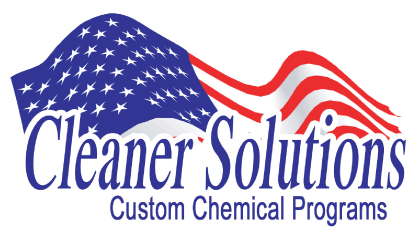Is your restaurant using Ready-To-Use (RTU) cleaning chemicals? Then it may be time to consider concentrates to save big on cleaning supplies for your commercial restaurant.
Buying RTU products to clean a commercial restaurant may seem to be cost effective because of their low purchase price, but they are actually much more expensive than concentrates.
Generally speaking, from a manufacturing standpoint, there is more cost in the packaging of a RTU cleaning product than there is in the cleaning agents themselves.
If you are buying $1.00 worth of RTU cleaners, $1.00 of concentrates will yield 4 to 8 times as much usable product for the same cost.
Purchasing concentrates is the better alternative as you will get high-quality chemicals for less money. Restaurants have saved as much as 30 to 70 percent on chemical cleaning and sanitizing products by switching to concentrates.
Why Are Restaurants Not Using Concentrates?
With such a drastic cost advantage in working with concentrates, why do restaurants still use RTU cleaning products?
The most frequent response is that the employees waste the concentrates. “Employees will not work within the system. They just do what they want.”
Does it make sense that restaurants end up spending 3 times, 4 times, or 6 times as much on RTU products as you would do on concentrates because employees do not work within the system?
If an employee was caught wasting 2 lbs. of ground beef to make a ½ lb. hamburger would the system be fixed or would that employee be fired? Why are employees allowed to waste money on cleaning chemicals?
Who to Hold Accountable
Hold your chemical vendor and your employees accountable.
The Chemical Vendor
- Have them install a dilution system that properly dilutes the cleaning chemical.
- Have them demonstrate that the properly diluted product works equal to or superior to the RTU, which justifies the massive cost savings.
- Have them train your staff to keep the wasted chemicals to a minimum.
- Have them be in charge of managing the chemical program along with proper labeling and storage to ensure you stay on budget.
The Employees
- If an employee is circumventing a system that works as advertised, they are hurting the business and need to be instructed on how to perform the task correctly.
- Further, they should be observed to make sure they are following the instructions after training.
- More than likely an employee that circumvents cleaning procedures will also circumvent other systems (food prep, company policies) as well. So it’s helpful to hold them accountable for all tasks at hand.
- Complete a training demo with employees (see suggested training demo instructions below).
This is your money or your budget. In order to save money and use more efficient cleaning chemicals, steps may need to be taken to hold both your chemical vendor and employees accountable. Once you address both, you can stay on budget.
Training Demo For Employees
Try the training demo below with employees to help explain the importance of following concentrate instructions and how it will lead to the best cleaning results.
Required items:
2 Quart bottles with sprayers.
1 Quart of glass cleaner concentrate.
2 Clean small towels for washing a window.
During a training meeting invite an employee to a cleaning contest and explain that you will each clean one window or mirror.
- Have the employee mix a quart of glass cleaner using the concentrate and water. Explain that he or she can use as much of the concentrate as they need or want.
- Then you mix your glass cleaner, mixing the product exactly as directed by the products label.
- Both you and your employee should then start cleaning the windows at the same time.
- See who finishes first and with the best result.
Hints–
- Make sure to fold your towel into a ¼ fold and use one side for cleaning and one side for wiping dry. It helps a lot.
- Make sure to use small towels.
- Make sure to choose an employee who frequently does not perform tasks correctly.
What will more than likely happen during the demo?
The employee will mix the glass cleaner way too strong and it will smear all over the glass. He or she will use their small towel to wipe up a lot of extra chemical. You will finish quicker with a better result and the employee will understand the difference it makes. The point will be made that more is not always better and that it’s important to follow the exact instructions in order to perform well and help the business cut down on wasted chemicals.


